Britain Might Exit the EU by Mistake
Adelina Marini, May 27, 2015
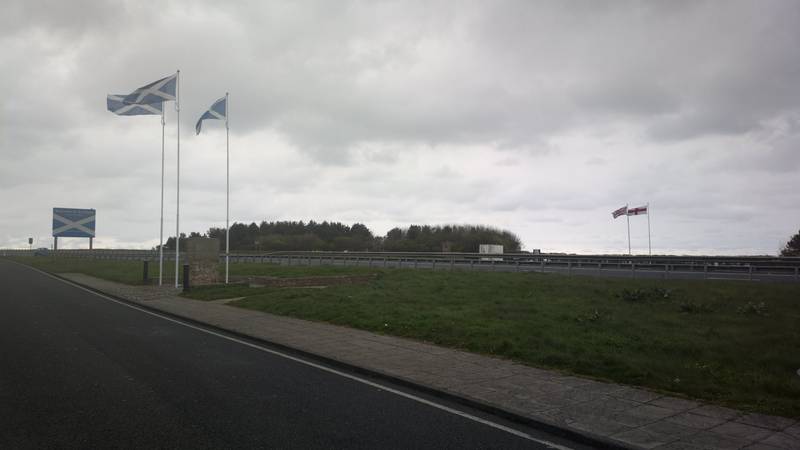 Bulgarians and Romanians dropped out relatively early in the election campaign in Britain for two very interesting reasons but, still, the future relations of the United Kingdom with the Union hide risks for the Bulgarian immigrants there, told me Ivailo Yaydzhiev, PhD student in international economic relations in Oxford. I spoke to him on election day - 7 May - in the courtyard of one of the university buildings not only about the challenges the European migrants are facing but also about the overall political and economic atmosphere on the other side of the English Channel. According to Mr Yaydzhiev, despite the initial hysteria created by UK Independence Party (UKIP) and its leader Nigel Farage, known for their anti-migrant rhetoric especially toward Bulgarians and Romanians, the issue gradually dropped out from the political life.
Bulgarians and Romanians dropped out relatively early in the election campaign in Britain for two very interesting reasons but, still, the future relations of the United Kingdom with the Union hide risks for the Bulgarian immigrants there, told me Ivailo Yaydzhiev, PhD student in international economic relations in Oxford. I spoke to him on election day - 7 May - in the courtyard of one of the university buildings not only about the challenges the European migrants are facing but also about the overall political and economic atmosphere on the other side of the English Channel. According to Mr Yaydzhiev, despite the initial hysteria created by UK Independence Party (UKIP) and its leader Nigel Farage, known for their anti-migrant rhetoric especially toward Bulgarians and Romanians, the issue gradually dropped out from the political life.
"Gradually, that feeling that we are the scapegoat for English politics as if disappeared and now we are rather some of the European migrants in the country and we fall in the greater category of the debate about Britain's place in the EU at large", he said and pointed out two reasons why the topic dropped out from the political agenda during the campaign. The first is that opinion polls gave UKIP no more than one or maximum three members of a parliament of more than 600 members. This expectation was confirmed in its low end by the election results - UKIP managed to send only one deputy because the votes for the party were relatively scattered across the whole country. When this was diagnosed in the opinion polls the issue dropped off. Another reason is that the Britons looked inside their country and found out there were many centrifugal tendencies in Scotland, Northern Ireland and Wales. That is why, the debate focused much more on domestic problems and the EU, Ivailo Yaydzhiev tells me sitting on a bench on a meadow which looks just like in the anecdote about the English meadow (you mow it and water it at least 400-500 years).
Scotland is the brightest example of centrifugal tendencies in the UK, as euinside wrote as well. The Bulgarian PhD student also shares the opinion that this was surprising. As other analysts whom euinside spoke with in Britain, Ivailo Yaydzhiev too sought an explanation back in time. He rewound back to the time of Tony Blair who promised when coming to power to grant more powers to local parliaments, especially in Scotland. He stuck to his promise and in 1998 the Scottish parliament was established. That is why Labour was able to rely on huge support north of the border for such a long time. But it all ended with the independence referendum when Labour joined the Tories, who have almost no base in Scotland, and the Liberal Democrats in the campaign for Scotland's staying in the Union. A campaign the final touch of which was made by a famous Scottish Labour politician - ex-premier Gordon Brown.
To the question if there is a parallel between Scotland's behaviour toward London and London's toward Brussels Ivailo Yaydzhiev laughed and after a long deliberation agreed that could be said. The parallel is based mainly on fear what would happen after independence. At the moment, there is a much bigger gap in Europe in terms of understanding Britain which is on both sides of the channel. EU has begun to ostracise UK just as in the beginning of EU's story. It has started to perceive it like a bit non-European, different than the rest. Britain, in turn, is also distancing itself from EU more and more whereas the Scots have a very clearly stated desire for independence, both economic and in terms of identity. The English really want to keep Scotland within UK.
The British see the EU in a much different way than, for example, we, Bulgarians. "To them this is not some kind of a cultural community or a community of values. To them this is mainly a matter of advantages or disadvantages from economic perspective. Even the eurosceptics base their arguments to a large extent precisely on such calculations - how much the English business benefits and how much it loses from EU membership. And most of all the biggest argument about the European regulations which hamper British entrepreneurs. Whereas, especially in Eastern Europe, EU is rather a cause, it is something we call a civilisational choice", Ivailo Yaydzhiev explains. The many opt-outs also have a great contribution to the big distance between the British and EU, starting with Schengen, the euro area and other opt-outs in fundamental European aspects, he adds.
While we were talking and the weather was changing from sun to rain and vice versa, the issue about the in-out referendum has not changed much apart from becoming certain. David Cameron promised two years ago that such a referendum would take place if he was re-elected. He was not only re-elected but he received an independent mandate for governance. That is why he suggested a referendum could take place earlier than 2017, namely next year. From Ivailo Yaydzhiev's description it becomes clear that the current situation is really a deadlock. On the one hand, he says, there is no party in the country to state a very clear position of "No, there should not be a referendum" or "Yes, Britain should stay in the EU". All parties have targeted the more eurosceptic electorate, he believes. "I don't see parties which can take a pro-European position without hesitating and that could lead to a situation where no one wants Britain to exit the EU but to make a Brexit by mistake".
This could be a problem especially for those Bulgarian migrants who want to take advantage of the freedom of movement and work in EU because if Britain exited one of the first things that would happen is tightening of control, the PhD student projected. This, however, affects mainly those who seek low qualified work as they will probably be "very toughly excluded from the labour market". The specialists will continue to be able to go and work in UK but will they be willing to is another issue, he added explaining that it is unknown at this stage what would happen to the reputation of the UK as a business centre.
The analyses of a possible Brexit focus mainly on the City of London. The Europeans believe that it will suffer the most from an exit whereas the British analysts are not that sure. Ivailo Yaydzhiev recalls that the rise of the City as a financial centre began before Britain joined in the 1970s which is why he does not see any fundamental link between it and the European markets. On the other hand though, if the UK exited the EU at a time when the Union was building big financial markets in the EU (the integration of the already built banking union with the recently proposed capital markets union) this could lead to an outflow of financial institutions from the City. The fundamentally strong sides of the City are that it is "on the right time zone" between Asian and American markets and the English language. On the other hand, the uncertainty surrounding the EU and the lack of knowledge whether the laissez faire approach will be kept toward financial regulations forces some financial institutions to consider leaving the English market.
 Very strong wind in the back for the Tories during the campaign were economic indicators. The country is one of the most dynamically growing economies in EU (2.6% growth of GDP), unemployment has been significantly reduced (6.1% in 2014) and, generally, everything suggests that the crisis is behind. According to Ivailo Yaydzhiev, however, under the surface there are some unpleasant facts. It is true that employment is at its record high but the paradox is that not due to a moving economy but to a significant drop of productivity. "This means that people have reduced their productivity and that has led to hiring more people to do the same job". The PhD student in international economic relations shares that he finds it difficult to understand the theses of the separatists that Britain would be better off outside the EU.
Very strong wind in the back for the Tories during the campaign were economic indicators. The country is one of the most dynamically growing economies in EU (2.6% growth of GDP), unemployment has been significantly reduced (6.1% in 2014) and, generally, everything suggests that the crisis is behind. According to Ivailo Yaydzhiev, however, under the surface there are some unpleasant facts. It is true that employment is at its record high but the paradox is that not due to a moving economy but to a significant drop of productivity. "This means that people have reduced their productivity and that has led to hiring more people to do the same job". The PhD student in international economic relations shares that he finds it difficult to understand the theses of the separatists that Britain would be better off outside the EU.
The reason is that the British economy, against the backdrop of EU's, is not as big in terms of population. "If trade with EU drops significantly I'm not sure there is something to be compensated with". The problem with productivity was pointed out by the European Commission in its spring economic forecast where it is said that the perspective productivity to remain at its current low level could depress wage growth.
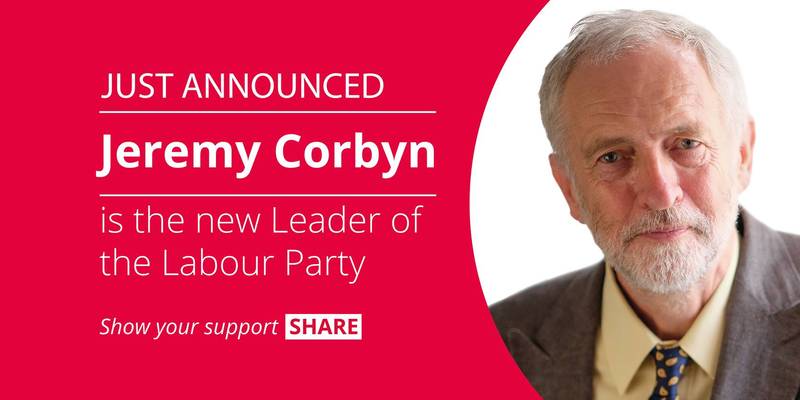 Jeremy Corbyn | © Labour
Jeremy Corbyn | © Labour Professor Michael Keating | © University of Edinburgh
Professor Michael Keating | © University of Edinburgh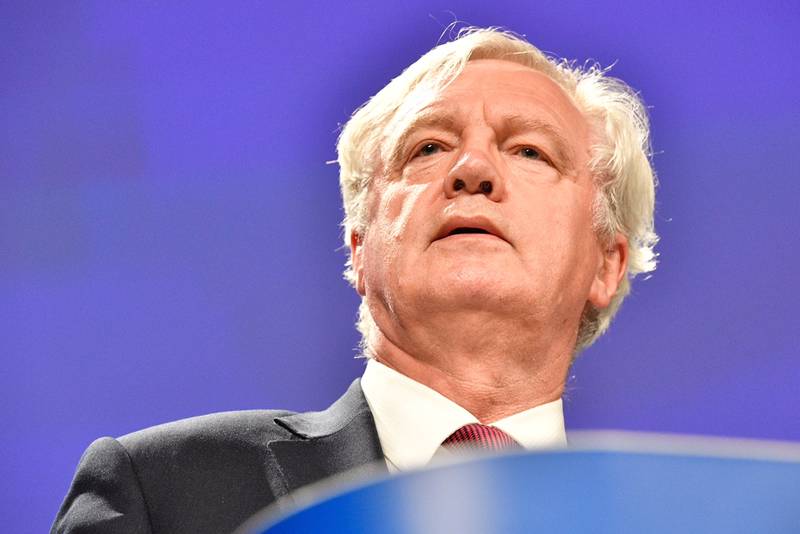 David Davis | © European Commission
David Davis | © European Commission Angela Merkel | © Council of the EU
Angela Merkel | © Council of the EU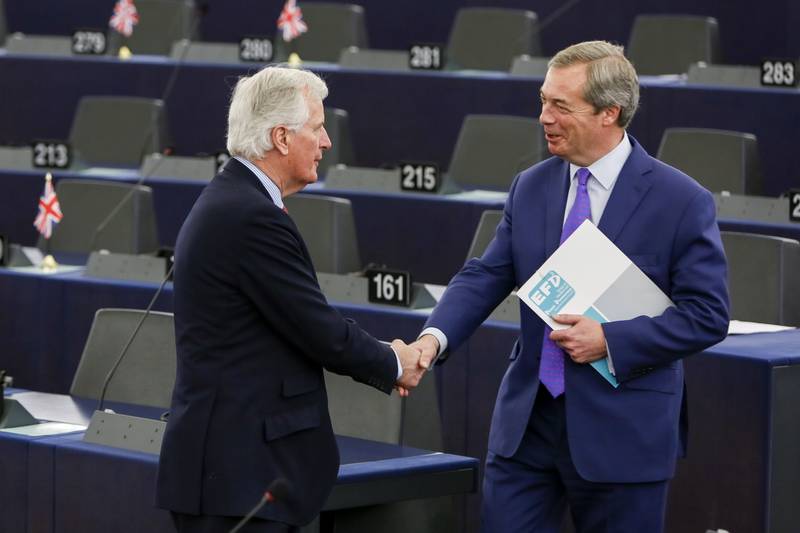 Michel Barnier, Nigel Farage | © European Parliament
Michel Barnier, Nigel Farage | © European Parliament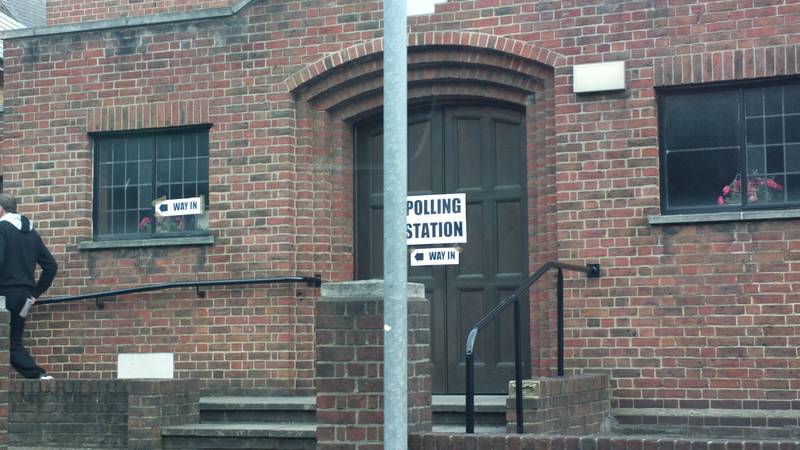 | © euinside
| © euinside